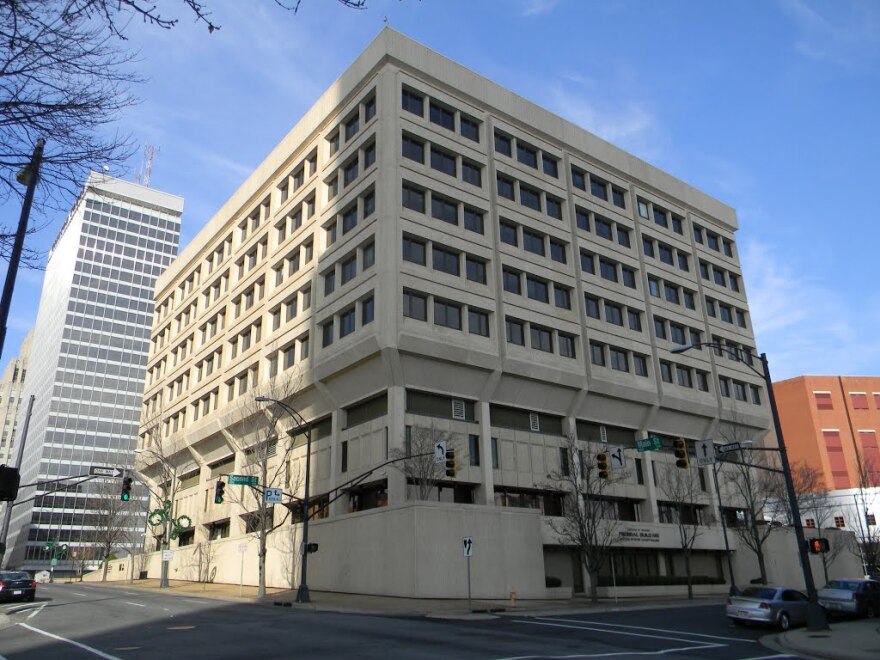North Carolina's attorneys continue their defense of the state's sweeping election overhaul in federal court Thursday morning. On day 12 of the trial Tuesday, they offered expert testimony that the 2013 changes put North Carolina in line with the majority of states. WFAE's Michael Tomsic was in the courtroom in Winston-Salem and joined Marshall Terry to discuss the latest.
How do North Carolina's voting practices after the overhaul compare to the country as a whole?
It puts the state in the mainstream, according to Sean Trende. He's an election analyst for the website Real Clear Politics, and the state called him as a witness yesterday.
The changes we're talking about are that North Carolina cut its early voting period by a week. It eliminated same-day registration. It no longer counts out-of-precinct ballots. Those are the main ones being challenged in court currently.
Trende pointed out that some states have no early voting. North Carolina still has 10 days. The overwhelming majority of states, 36 by his count, don't offer same-day registration. And the majority of states also don't count out-of-precinct ballots.
One of the points the state's attorneys have brought up a lot is if these things are unconstitutional here, that has real implications for all these other states.
How did the U.S. Justice Department and others suing the state respond?
They say it's about taking away something that African-Americans disproportionately rely on in North Carolina. That reliance is an established fact in this case. With all of these changes, African-Americans used them at a higher percentage than whites.
That's a point the plaintiffs' attorneys keep coming back to in trying to say if it's not OK here, that doesn't necessarily mean it's not OK everywhere else.
The state also called the head of the state Board of Elections to testify. What points did she make?
She said that even with fewer days of early voting, the law is resulting in more early voting sites and more evening hours.
Executive Director Kim Strach said that's because in cutting the early voting period by a week, most counties are still required to offer the same total hours. Basically you have to crunch more in, and that's resulting in more options in her eyes.
She also said there were vulnerabilities in our old voting system, and that it's possible that fraud could make a difference in a low-turnout race, like some municipal elections.
The plaintiffs have countered throughout this trial that there is very little, if any, evidence of fraud actually occurring. There may be a risk, but it's not an actual problem.
When are closing arguments?
They're scheduled for Thursday morning. Federal judge Thomas Schroeder says he will take some time after that before reaching his decision.





